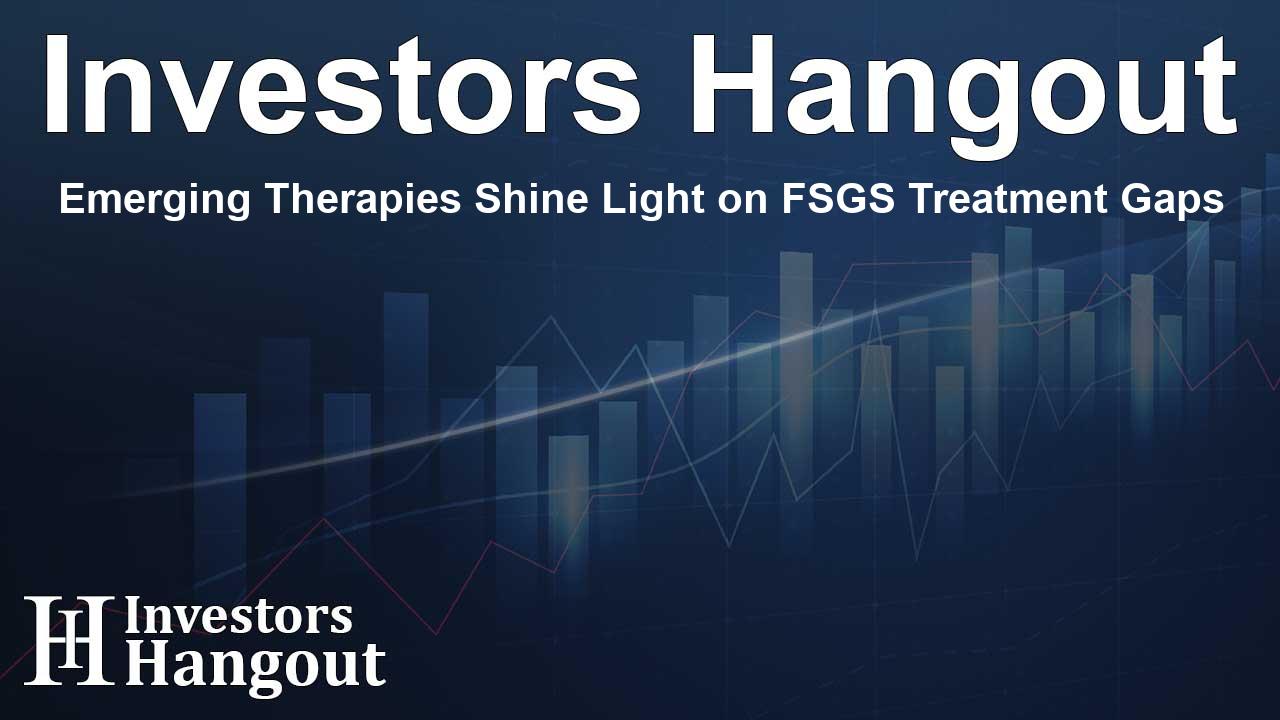Emerging Therapies Shine Light on FSGS Treatment Gaps

Understanding the Urgency Behind FSGS Treatment Innovations
Focal segmental glomerulosclerosis (FSGS) is recognized as a prevalent glomerular disease that nephrologists often encounter. It stands out among rare kidney diseases, signifying an area where patient care is critically underserved. Studies underscore the pressing need for effective treatments, particularly in light of new findings from recent analyses.
The Current Landscape of FSGS Management
Currently, there are no FDA-approved therapies specifically targeting FSGS, which presents a significant challenge for healthcare providers and patients. The implications of managing such a progressive disease amplify when considering long-term medications like steroids, which may carry their own risks and complications.
Recent surveys conducted with nephrologists show alarming statistics: nearly half of the patients diagnosed with FSGS are receiving inadequate treatment. This data emphasizes an urgent need for alternative therapies in order to improve patient outcomes and quality of life.
Impact of SGLT2 Inhibitors on Treatment
One of the key advancements in managing FSGS has been the increased adoption of SGLT2 inhibitors. Over the past years, their usage has seen a dramatic rise, indicating a shift towards more effective standard care approaches in chronic kidney disease (CKD) management. These medications are notably appreciated for their capability to diminish the rate of eGFR decline, marking a significant treatment milestone for patients.
Genetic Insights Driving Personalized Treatment
Moreover, genetic testing has transformed the way physicians approach FSGS treatment, especially in screening for the APOL1 gene, which is linked to heightened risk factors. This has facilitated a more personalized medical approach for patients who are genetically predisposed, allowing for tailored treatment strategies that significantly enhance care.
Pipeline Developments for FSGS Therapies
An encouraging aspect of the current landscape is the active development of novel therapies aimed at addressing these pressing needs. Leading candidates in the pipeline include sparsentan from Travere, marketed as FILSPARI for IgA nephropathy, as well as inaxaplin from Vertex, targeting APOL1-mediated kidney disease. Additionally, DMX-200 from Dimerix is under evaluation, with all three assets currently progressing through Phase 3 trials. The growing interest and enthusiasm from nephrologists regarding these treatments highlight their potential to fill gaps in the current management strategies for FSGS patients.
Commitment to Advancing Patient Care
As the nephrology community continues its quest for improved patient care, the emphasis on innovative therapies remains a critical priority. Ongoing monitoring and studies conducted by independent organizations will provide necessary insights into the evolving therapeutic landscape, specifically focusing on the needs of FSGS patients.
About Spherix Global Insights
Spherix Global Insights is a prominent market intelligence and advisory firm dedicated to providing critical insights to the global life sciences community. With a team of seasoned experts, Spherix remains at the forefront of analysis across diverse specialty healthcare markets.
By focusing on evolving specialty fields, including nephrology, their research supports clients in understanding the needs of healthcare providers and patients. This ability to gauge market trends empowers stakeholders to position themselves effectively and make informed decisions.
For further engagement and insights, interested parties are encouraged to explore Spherix Global Insights and their offerings to stay informed about industry developments.
Frequently Asked Questions
What is FSGS?
Focal segmental glomerulosclerosis (FSGS) is a rare kidney disease that affects the kidney's filtering units, leading to kidney damage.
Why is there a need for new therapies for FSGS?
Currently, there are no approved treatments specifically for FSGS, and existing therapies are not adequately managing patient needs, highlighting an urgent demand for innovative solutions.
What advancements have been made in FSGS treatments?
Recent advancements include the increased use of SGLT2 inhibitors and the application of genetic testing to tailor more effective treatment strategies for patients.
Which companies are developing new FSGS therapies?
Companies like Travere, Vertex, and Dimerix are leading the charge in developing new therapies, with promising assets currently in Phase 3 trials.
How does Spherix Global Insights contribute to FSGS research?
Spherix conducts extensive market research and analysis that provides valuable insights into treatment patterns, unmet needs, and emerging therapies within the FSGS landscape.
About Investors Hangout
Investors Hangout is a leading online stock forum for financial discussion and learning, offering a wide range of free tools and resources. It draws in traders of all levels, who exchange market knowledge, investigate trading tactics, and keep an eye on industry developments in real time. Featuring financial articles, stock message boards, quotes, charts, company profiles, and live news updates. Through cooperative learning and a wealth of informational resources, it helps users from novices creating their first portfolios to experts honing their techniques. Join Investors Hangout today: https://investorshangout.com/
Disclaimer: The content of this article is solely for general informational purposes only; it does not represent legal, financial, or investment advice. Investors Hangout does not offer financial advice; the author is not a licensed financial advisor. Consult a qualified advisor before making any financial or investment decisions based on this article. The author's interpretation of publicly available data shapes the opinions presented here; as a result, they should not be taken as advice to purchase, sell, or hold any securities mentioned or any other investments. The author does not guarantee the accuracy, completeness, or timeliness of any material, providing it "as is." Information and market conditions may change; past performance is not indicative of future outcomes. If any of the material offered here is inaccurate, please contact us for corrections.









